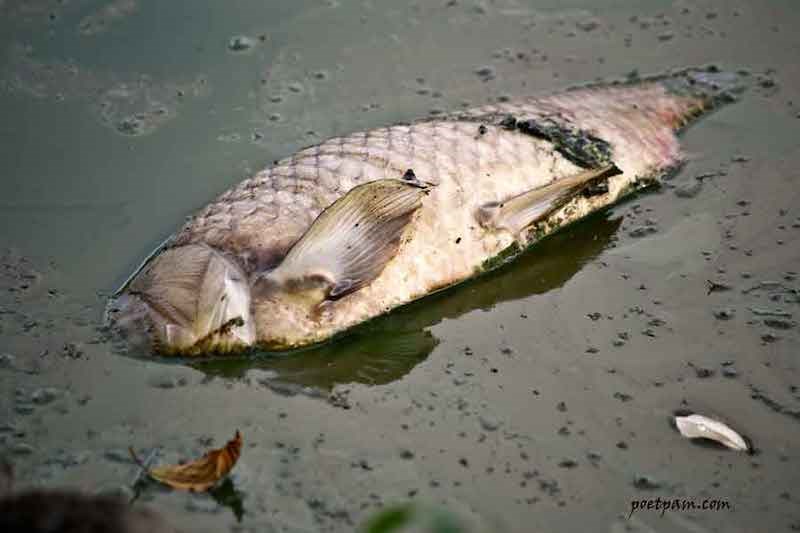Something smells fishy in Stanley Park.
A recent of numerous dead fish in the park's Lost Lagoon, shared on Twitter on July 19, has sparked some concern among locals. Another was shared on Reddit.
However, this isn't the first time that dead fish have washed ashore in the lagoon.
After an evaluation, the Â鶹´«Ã½Ó³»Board of Parks and Recreation concluded that the fish seen in the video and photo are Three-spined Sticklebacks which are native to B.C., a spokesperson tells V.I.A.
In previous years, dead carp have also been spotted in the same waters.
Why do fish keep dying at Lost Lagoon?
The Park Board explains that there are mainly three fish species in Lost Lagoon: the dominant and invasive Common Carp, the Prickly Sculpin, and Three-spined Stickleback. The likeliness of Lost Lagoon having a bigger variety of fish species is low "based on observations and poor habitat quality," the spokesperson notes.
As for the Three-spined Sticklebacks, the masses of dead fish is the first incident of this kind for the species recorded at the lagoon.
But, it isn't abnormal for this species as they "have been known to die after spawning."
Young Three-spined Sticklebacks are dark and small, whereas the adults, which are seen in the video, are silver and vary in size.
"While Sticklebacks do not always die off after a mass spawning, it has been known to occur at other locations," explains the Park Board. "We can speculate that perhaps this was a good year for Sticklebacks in terms of population growth at Lost Lagoon but having this number of fish confined to a non-natural freshwater ecosystem subsequently created the conditions for this incident to occur (such as increased competition for oxygen, resources, etc)."
What about the Common Carp?
In September of 2021 and 2022, Common Carp populations in the lagoon experienced a "die off."
Water quality testing was done and necropsies were performed on several fish but an exact cause could not be determined, which led to the conclusion that the mass deaths were related to the overall water quality. "Mainly low dissolved oxygen and high salinity from the adjacent ocean in Coal Harbour," notes the Park Board spokesperson.
There are other stressors that can cause an ecosystem such as that at Lost Lagoon to deteriorate, to which these die-off events could be attributed, including changes in water quality, lack of presence of native plant species, brackish conditions, temperature fluctuation, algae blooms, pollution, anoxic sediment disturbance, precipitation, and viruses and diseases.





